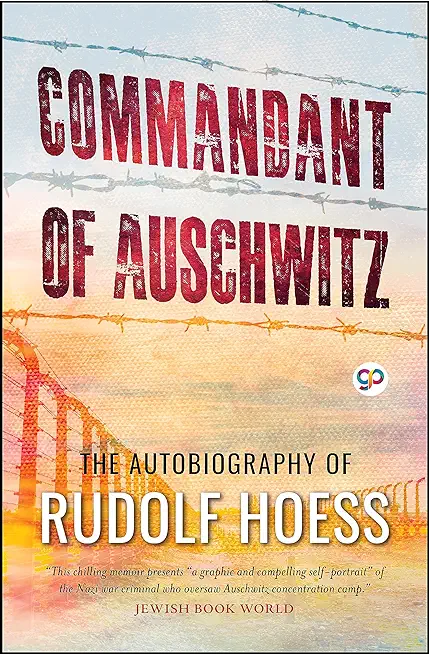
Rudolf Hoess was a German SS officer during the Nazi era who, after the defeat of Nazi Germany, was convicted for war crimes. He was the longest-serving commandant of the Auschwitz concentration and extermination camp (from 4 May 1940 to November 1943, and again from 8 May 1944 to 18 January 1945). He tested and implemented means to accelerate Hitler's order to systematically exterminate the Jewish population of Nazi-occupied Europe, known as the Final Solution. On the initiative of one of his subordinates Hoess introduced the pesticide Zyklon B to be used in gas chambers, where more than a million people were killed. Hoess was hanged in 1947 following a trial before the Polish Supreme National Tribunal. During his imprisonment, at the request of the Polish authorities, he wrote his memoirs, released in English under the title Commandant of Auschwitz: The Autobiography of Rudolf Hoess. Like most things in his life, Hoess undertook the autobiography with great diligence. A careful checking by researchers showed he took great pains to tell the truth. The result: a vivid and unforgettable picture of the 20th century's defining and most horrific event.







